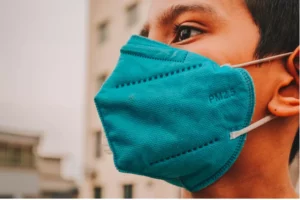As the Data Roll In, We Get a Better Sense of What Worked During the Pandemic
July 3, 2024

Congressional hearings in June featuring the beleaguered former head of the National Institute of Allergy and Infectious Diseases (NIAID), Dr. Anthony Fauci, gave some Representatives the opportunity to criticize steps taken to limit the impact of the Covid-19 pandemic in the U.S. One of their chief points is that face mask recommendations were amiss because face masks, they insist, don’t work and may actually be harmful. They point to a January 2024 Cochrane report that reviewed some face mask studies and concluded that face masks are ineffective in limiting the spread of airborne viruses like the one that causes Covid-19. Face mask critics have been quick to insist that Cochrane reports are definitive, the last word according to them on any health issue.
There were several problems with the Cochrane review of face mask safety and effectiveness. For one thing, it relied on randomized clinical trials. In many circles, randomized clinical trials, or RCTs, are held as the gold standard for determining if an intervention is safe and effective. In an RCT, research participants are randomly assigned to receive an intervention under study or a control condition. This limits the possibility that biased assignment will influence the results.
But almost as soon as the Cochrane report was published, many experts criticized that reliance on RCTs, pointing out the difficulty of actually pulling off rigorous randomized assignment when something like wearing face masks is concerned. How do we know if the people assigned to wear face masks really wear them and when and for how long? Maybe the people assigned to the no face mask condition sometimes wear them. The critics of the Cochrane report noted that it failed to take into account face mask studies with different experimental designs that might yield important information on their effectiveness.
A Much Better Analysis Emerges
In May a very welcome and detailed assessment of face mask safety and effectiveness appeared in the journal Clinical Microbiology Reviews that offers a much more comprehensive evaluation of them and contradicts the conclusions of the Cochrane report. This review considered non-RCT as well as RCT studies and concluded among other things that “masks are, if correctly and consistently worn, effective in reducing transmission of respiratory diseases.” Some of the other conclusions of this study were:
- There is strong evidence that respiratory pathogens like the SARS-CoV-2 virus that causes Covid-19 are spread through the air
- There is a “dose-response” effect for face masks, so that the more they are worn the more effective they are
- Respirators like N95 masks are more effective than medical or cloth masks
- Mask mandates are effective in limiting transmission of airborne disease like Covid-19
- Face masks are important “sociocultural symbols” that become linked to political partisanship and are prone to misinformation
- Masks are generally not harmful, although people with some medical conditions may be adversely affected by continuous use of face masks and they may be problematic for people in some groups, like deaf people, because they limit some forms of communication.
The bottom line from this analysis is “the claim that masks don’t work is demonstrably incorrect, and appears to be based on a combination of flawed assumptions, flawed meta-analysis methods, errors of reasoning, failure to understand (or refusal to acknowledge) mechanistic evidence, and limitations in critical appraisal and evidence synthesis.” In other words, the Cochrane report was deeply flawed and should be disregarded.
Vaccine Mandates Seem to Work Too
In a similar vein, a new study of a vaccine mandate for healthcare workers in Canada found that “the mandate was associated with significant increases in vaccine uptake and infection risk reduction…” Once again, critics of public health measures to limit the spread of the coronavirus that causes Covid-19 have come down hard on vaccine mandates, arguing that they violate personal freedoms and are ineffective. But as more and more data roll in, we see that in fact vaccine mandates are effective: they increase vaccine uptake and the more people that are vaccinated, the lower the risk of serious infection and death from serious respiratory viruses.
It is important to remember how off-guard healthcare professionals, scientists, and public health officials all were when the Covid-19 pandemic struck. At first, there was uncertainty about how the virus spread and what it would take to control it. At the same time, millions of people worldwide were being infected with this new virus, many of whom became deathly ill. In the absence of rigorous studies about things like face masks, social distancing, and vaccine mandates we were forced to use scientifically informed best guesses at first. Once it was clear that the virus is spread through the air, requiring face masks made perfect sense. Fortunately, safe and effective vaccines were quickly developed using the novel mRNA technology and once again it was absolutely reasonable to require that people get them in order to participate in public assemblies.
It was easy for some people to attack these recommendations and requirements, claiming that they lacked scientific support. Most of the time, however, these critics offered entirely unscientific objections, like insisting that face masks harm people and that vaccines don’t work. In fact, now that we have the benefit of good scientific evidence, we can see that many of those initial recommendations did in fact work. As more studies are conducted and more data become available, we are going to get a much better picture of what did and didn’t work to limit as much as possible the devastating effects of the Covid-19 pandemic. What we don’t need are flawed analyses and unscientific political rhetoric muddying the waters, lest we fail to learn vital lessons that can be applied to future viral outbreaks. The Cochrane review on face masks should never have been published and it should not be seen as definitive in any way. Instead, we must rely on much better analyses, like the one in the Clinical Microbiology Reviews article, to guide us. This shows us that the intuition to recommend face masks was remarkably accurate. We are fortunate that public health experts made that call, even though they did not at the time have all the evidence they would have liked to support it. Increasingly, however, we can rely on more solid research to tell us what worked. Hopefully, insights gained from this work will make us better prepared to confront future novel viruses.
Related Posts

The Lab Leak Hypothesis for the Origin of the COVID-19 Virus is Dangerous
Posted in COVID
The lab leak theory is most likely wrong and engenders mistrust.

Misrepresentations Abound From Members of Congress
Posted in COVID
Beleaguered former head of NIAID Anthony Fauci has maintained great scientific rigor while being attacked by Congress. What the most recent hearing tells us about our nation's polarization and people's tolerance for uncertainty.

Political Partisanship Can Be Deadly
Posted in COVID
The authors of a new study find that political polarization was often the key factor in people's decisions about whether to mask up, socially distance, and/or get vaccinated.